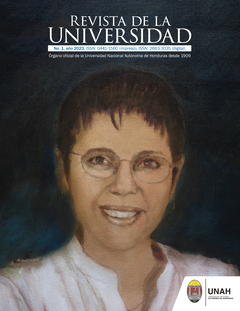Plagiarism and ethics in the social research process
DOI:
https://doi.org/10.5377/ru.v1i1.17244Keywords:
Social research, ethics, plagiarism, technologyAbstract
Plagiarism is an action in which a person uses words, ideas or other creations of someone else, as if they were their own, denying the corresponding credit to the original author. The research culture in the preparation of undergraduate and graduate theses is the subject of accusations related to plagiarism carried out by students and public figures with political and government participation. Many cases of plagiarism are not investigated due to lack of control or technical capacity. Complaints by teachers against students for plagiarism in work have become common. Hence the importance of analyzing ethical training in the university community for social research processes, which should be oriented towards the development of rigorous and honest academic work to avoid plagiarism. The central theme of this article refers to deficiencies, technological threats, ease, artificial intelligence and lack of institutional control, as well as the proposal of actions to be undertaken by the entities and organizations linked to the support and supervision of research work and recognition of academic degrees. , which are essential to control irregularities in the process. This paper emphasizes the importance of the formation of virtues, values, moral and ethical development in the process of social research, for which it is important to approach it from analogical hermeneutics and social criticism.
1226
Downloads
Published
How to Cite
Issue
Section
License
Copyright (c) 2023 Revista de la Universidad

This work is licensed under a Creative Commons Attribution-NonCommercial-ShareAlike 4.0 International License.




